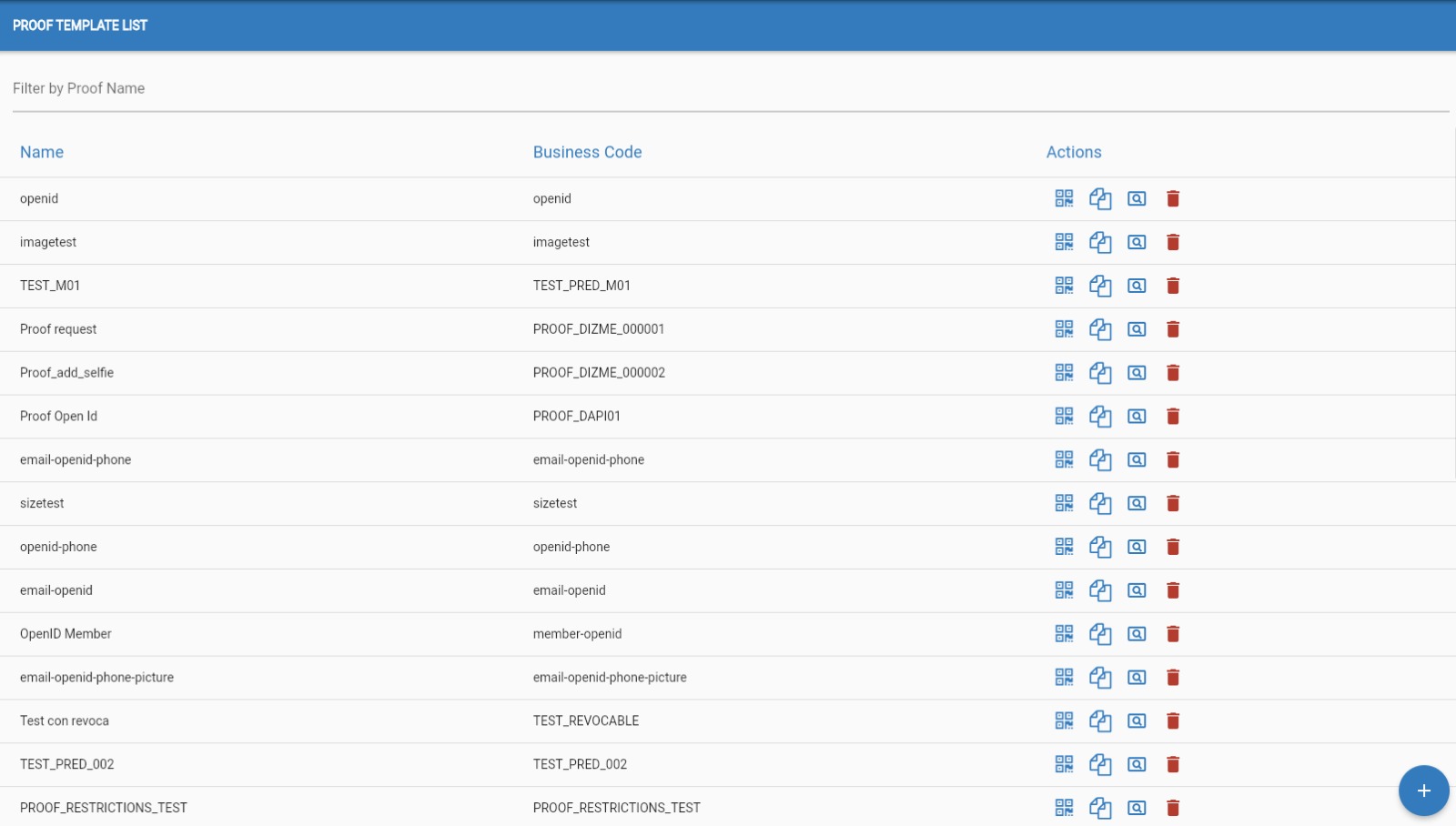Proof Template Page
The proof is the owner's response to a proof request in a self-sovereign identity (SSI) system. Credentials serve as digital representations of an identification card, passport, driver's license, or club membership card, while a proof certifies that the operator possesses the necessary credentials for a proof request. In an SSI system, the holder of credentials can generate verifiable representations, informally known as proofs, after a verifier creates a proof request.
Proof requests can be composed of 2 different attributes:
- Restricted
- Self-attested
Restricted attributes are taken from schemes or credentials connected to the organization. Restricted attributes can be REVEALED or UNREVEALED.
-
Revealed means that the USER will send to the Verifier the content of that field.
-
Unrevealed, also known as zero-knowledge, won’t show up the content of that field and the Verifier will only know the existence of it, like:
"Does the USER have a college degree?" the verification will get a "yes/no" answer.
- Self-attested attributes are not connected to schemas or credentials, this type of attribute is a certification that the USER vouch for, without the need for a specific credential. Self-attested can have different types and they could be mandatory or not.
If a self-attested attribute is mandatory, the USER is forced to fill the field in the proof request.
If a self-attested attribute is not mandatory, it won’t be necessary to fill this field during the proof request.

